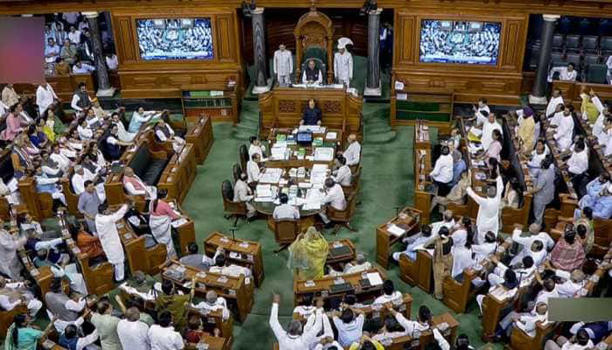In the wake of the scorching events of July, anyone who remains skeptical about the reality of global warming is entrenched in denial that would rival ignoring a blazing inferno despite one’s own clothes being ablaze. Shockingly, numerous Americans continue to disregard the scientifically-established truths, opting instead to embrace the falsehoods perpetuated by the fossil fuel industry, their political allies, and the so-called experts who have compromised their integrity for the industry’s gain.
Equally culpable are those of us who acknowledge the irrefutable evidence of climate change, yet fail to take meaningful action to counter the escalating chaos. We are akin to frogs languishing in a slowly heating pot of water, oblivious to the rising temperature and the impending danger we face. July, having secured its place as the hottest month ever recorded in human history, demonstrated the severity of the issue. In regions like Phoenix, emergency rooms were inundated with victims of heatstroke and burns from sizzling pavements and metal surfaces. Notably, heat-related fatalities outpace hurricane-related deaths in the United States. On a global scale, a staggering 5 million individuals succumb annually to heat-related causes.

It’s the vulnerable—the elderly, the infirm, the impoverished, and the homeless—who bear the brunt of the heat’s fury. While the affluent and middle class can retreat to air-conditioned havens, this worsens the situation by increasing CO2 emissions due to electricity consumption. Tragic deaths also resulted from floods triggered by the capacity of warm air to hold more moisture during storms. This summer, the Northeast and Pakistan suffered devastating flooding, while the western United States faced both replenishing rains and ruinous floods that razed homes and farmland. The inevitability of future droughts looms ominously.
The cumulative impact of heatwaves and deluges translates into billions of dollars in damages and lost productivity, while concurrently producing a wave of climate refugees forced to migrate in search of survival. And yet, as harrowing as this scenario may seem, it represents only the inception of the irreversible harm we are inflicting upon our planetary abode.
Across the globe, mountain glaciers are receding, thereby imperiling the dependable water sources of millions. Coral reefs, which took centuries to flourish and serve as the ocean’s nurseries, are succumbing to warm water and heightened acidity. Their demise would herald the extinction of myriad marine species that rely on these reefs for habitation and breeding, irrevocably altering the oceans and the food chain.
Simultaneously, ocean levels continue to rise. Reduced ice coverage around Antarctica—though seemingly inconsequential—compromises the stability of the continent’s ice sheets. The shrinking North Pole ice cap further exacerbates oceanic heat absorption, as ice normally reflects sunlight. The central question revolves around the pace at which this climatic catastrophe will unfurl. Some experts foresee the worst-case scenario unfolding in the next century, while others sound the alarm about tipping points that could propel the crisis to rapid escalation.
“If we are able to significantly reduce greenhouse gas emissions, U.S. sea level in 2100 is projected to be around 0.6 meters (2 feet) higher on average than it was in 2000,” according to NOAA. “On a pathway with high greenhouse gas emissions and rapid ice sheet collapse, models project that average sea level rise for the contiguous United States could be 2.2 meters (7.2 feet) by 2100 and 3.9 meters (13 feet) by 2150.”
Two ominous climate scenarios portend swifter calamity. Firstly, the destabilization and eventual release of all Greenland’s ice into the sea would translate into a 6.5-foot sea level rise. Secondly, the unfreezing of Siberian permafrost could unleash a methane deluge, propelling an abrupt global warming event. As the 22nd century dawns, future generations will not revere our technological advancements. Rather, they will condemn our legacy of failing to avert the impending environmental catastrophe, much like we condemn past generations for turning a blind eye to atrocities.
The toll will be immeasurable: millions of lives lost, potentially half the world’s population, alongside enduring suffering for billions in a resource-depleted world. Governments will crumble, chaos will reign, and Earth will bear little semblance to its former self. This devastation resonates even more acutely with believers who view this as a desecration of the divine creation bestowed upon humanity—a gift now squandered. Instead of cherishing this gift, we’ve acted as reckless children, shattering our blessings without a second thought.
Though Christians advocate shouldering burdens akin to Jesus’s cross, our actions have constructed burdens for the generations that follow. As the echoes of historical wars, pandemics, and socio-political upheavals fade, the inhabitants of future centuries will castigate us for our negligence. They will inquire why we allowed global warming to spiral out of control, despite possessing the knowledge and means to intervene. It’s a question that will resonate far beyond technological innovation—a question we must confront before our complacency seals the fate of our only home.
Jesus tells us, “Do not be afraid.” I must confess that I am terrified by what is coming even though I know I will be dead before the worst happens. For once, I am happy I don’t have children. I pray for a miracle, a deus ex machina, even though we do not deserve one.
To those not yet born, all I can say is, “I’m sorry.” But I don’t expect you to forgive us.
